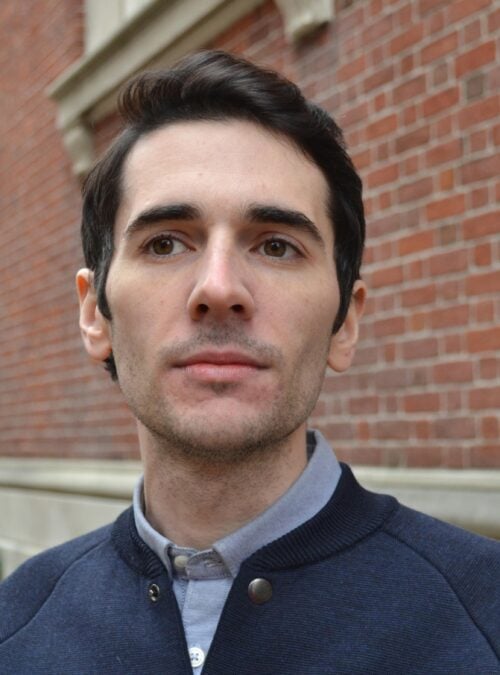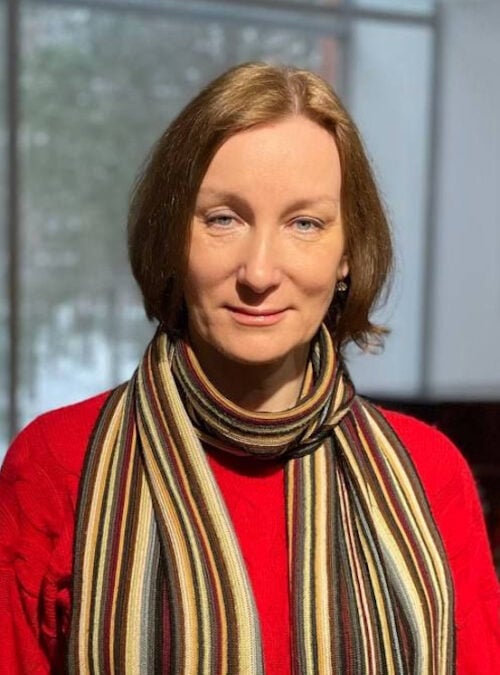Interview with Burkhart Kroeber, translator from Italian into German
Author: Maddalena Fingerle

Burkhart Kroeber (1940) is one of the most important German-language translators. His translations include works by Umberto Eco, Italo Calvino, Tomasi di Lampedusa, Carlo Fruttero and Franco Lucentini. In 2013 he received the Career Award for his work as a translator from Italian into German.
When and how did you start working as a translator?
In 1971 I came across extracts from the 200 Tesi del Manifesto in a French periodical. I was so enthusiastic about them that I decided to translate them “for my German comrades”, on my own and without a publishing contract. But first I had to improve my Italian, which was still very superficial. At that time, I was looking for a new job. My career as an Egyptologist, which had begun with a view to becoming an assistant to the professor who had directed my doctoral thesis, had been shattered by my involvement in the ’68 movement. As chance would have it, in October 1971, a few days after I finished the translation, another translation of the 200 Tesi was published by Merve Verlag. I studied it carefully and, from the very first pages, found it mediocre and, on the whole, inadequate. I wrote to the publisher to ask him to replace it with my own, but my proposal was obviously rejected. Given that the other translation, done by three people, was immediately available in all left-wing bookshops, I had no chance of finding a publisher for mine, so it remains unpublished to this day.
At first, I did it for purely political reasons, because the 200 Tesi had made such an impression on me, but as the work went on, I took increasing pleasure in translating, and when Merve Verlag offered me the consolation of translating other Italian texts for them, I gladly accepted, and that’s how things went from there…
Which Italian-language authors have influenced you?
First of all, in the 70s, politically committed intellectuals like Rossana Rossanda and Lucio Magri (initiators and main authors of the 200 Tesi del Manifesto). Then, from 1980 onwards, Umberto Eco and Italo Calvino, followed by Franco Lucentini and Carlo Fruttero.
In your opinion, are there any linguistic peculiarities and expressions that ‘work’ well in German but cannot be adequately rendered in Italian? If so, what examples can you give us?
German compound nouns are always very difficult to render in Italian, from common terms like “Feuerwehr” (fire brigade), literally “Wächter des Feuers” (“vigili del fuoco”, literally “guardians of fire”), to original creations like “eisige, krähenschreiharte Morgenfrühe” by Th. Mann (in the last chapter of Der Zauberberg, subchapter Twenty-One), which, in Italian, needs to be analysed in depth, as Renata Colorni did in her 2010 translation: “…gelida nebbia dell’alba in cui risuona il grido delle cornacchie” (… the icy fog of dawn in which the cry of the crows echoes).
In Italian, for example, adjectives in the superlative carissimo, bellissimo, grandissimo, etc. generally need to be expressed with a little more sobriety. Similarly, ecco is always difficult, because in German you can never abbreviate it (I’ve sometimes replaced it with voilà). I’ve always liked expressions like eccoci qua!
What’s the most difficult word (or expression) you’ve translated so far? Which authors have you translated it from?
There are always words and expressions that are difficult to translate, but I can’t think of any examples (apart from ‘ecco‘).
The most difficult author for me to translate was the Marxist philosopher Galvano della Volpe in 1977, who was introduced to me by the Italian editor of the German edition as the “Italian Adorno”, with his Critica del gusto, an aesthetic-philosophical investigation full of textual quotations from all countries and all periods, often even from antiquity. At the time, there was no internet and you still had to laboriously search for information in libraries. That was my last translation of non-fiction at the end of the 1970s, I’d run out of energy, I didn’t want to translate any more and I applied (successfully) as a non-fiction editor at Hanser Verlag. Three years later, Eco’s Il nome della rosa was placed on my editor’s desk for review….
Are there any of your translations that are particularly close to your heart?
Of all the authors I’ve translated, my favourite is Italo Calvino. I particularly enjoyed translating his “meta-novel” Se una notte d’inverno un viaggiatore and Le cosmicomiche, which I called his literary summa in a very glowing review in 1989.
Translating has never bored me, but some passages in Eco’s last two novels, Il cimitero di Praga (2010) and even more so Numero Zero (2015), irritated me a little, even annoyed me.
What is or has been your relationship with the authors?
My relationship with Umberto Eco was very good for over 30 years, often friendly and always based on cordial collaboration. In recent years he sometimes became a bit grumpy, but that was probably due to the general situation and especially that of Italy (Berlusconi).
I only spoke to Calvino twice in person, briefly. The first time was in Vienna in 1984, when he was awarded the National Prize for European Literature, and the second was in Rome in 1985, six months before his death. On both occasions he was very friendly, but we didn’t talk much about translation. His texts were always so clear that I never had to ask him the slightest doubt or question.
I also maintained a good friendship with other authors, in particular Carlo Fruttero and Franco Lucentini. I visited them both at their respective holiday homes, Lucentini in Fontainebleau, near Paris, and Fruttero in Castiglione della Pescaia, in the Maremma – where, among other things, he showed me Calvino’s burial site by the sea, in a Paul Valéry-style marine cemetery, which Fruttero had worked on thanks to his good contacts with the local community and Calvino’s widow.
I also had a good relationship with Andrea De Carlo when I was translating him, and I still correspond from time to time with Roberto Cotroneo in a friendly and cordial tone.
Has your view of language changed since you started translating?
My view of language has, of course, become increasingly critical over the years, even pedantic, and that’s probably true of anyone who’s been writing for decades… But at the same time, the German language has changed so much that it often seems strange to me. When I was a student, there were no verbs like “priorisieren” (to prioritize), “fokussieren” (to focus on), “adressieren” (to address someone), “sich gerieren” (to take on the role of), at least not in everyday language. The verb “priorisieren” does not even appear in the 1974 Fremdwörter-Duden (German dictionary). Today, one no longer directs one’s “gaze” towards something (den Blick auf etwas richten), but one “focuses on something” (man richtet den Fokus auf etwas). Apparently, the younger editors sometimes find my language a bit old-fashioned or outdated and consequently want to correct it.
Have you ever made mistakes in translation? Or did you find errors in the texts you were translating? If so, how did you react?
Everyone makes mistakes, that’s human, but today I can only remember one that really bothered me, even though my author Eco made it first and I didn’t correct it. In a 1982 essay, Eco had called the American president’s room in the White House the “Oval Room”, and I didn’t correct it to “The Oval Office” (although the editor in charge didn’t either), which explains why this misnomer is still present in the book and has provoked ironic reactions among critics…
Is there a book you would have liked to translate that you didn’t get around to translating?
I would have liked to retranslate some of Calvino’s older books, such as Ultimo viene il corvo or La giornata di uno scrutatore or the trilogy I nostri antenati (Il visconte dimezzato, Il barone rampante, Il cavaliere inesistente). Unfortunately, after 20 years of begging and pleading, the publisher Hanser Verlag didn’t give me the go-ahead until 2007, and then only for Le città invisibili. In 2011, thanks to this work, I was awarded the Christoph Martin Wieland Translation Prize.
Do you think that anything should change in the literary world as far as the work of translators is concerned?
Yes, there are many things that could be improved, starting with remuneration, which is still very modest. At best, you can survive (provided you’re fit and healthy), as long as you don’t have a family to support. Only those who have the rare good fortune to have translated genuine bestsellers and contributed to their success can retire in peace. We also need to improve the general contractual situation, which objectively still favours publishers, especially the big publishing groups, who impose the law of the strongest in their dealings with freelance translators. To change this dynamic, we need to give translators’ associations the right to take legal action, so that in the event of a dispute, the professional association can take action on behalf of the individual. We have been denied this possibility for years. Finally, it would be sensible and appropriate for the translator’s name to appear on the cover of the book under the author’s name; some small publishing houses already do this, but most large ones do not.










